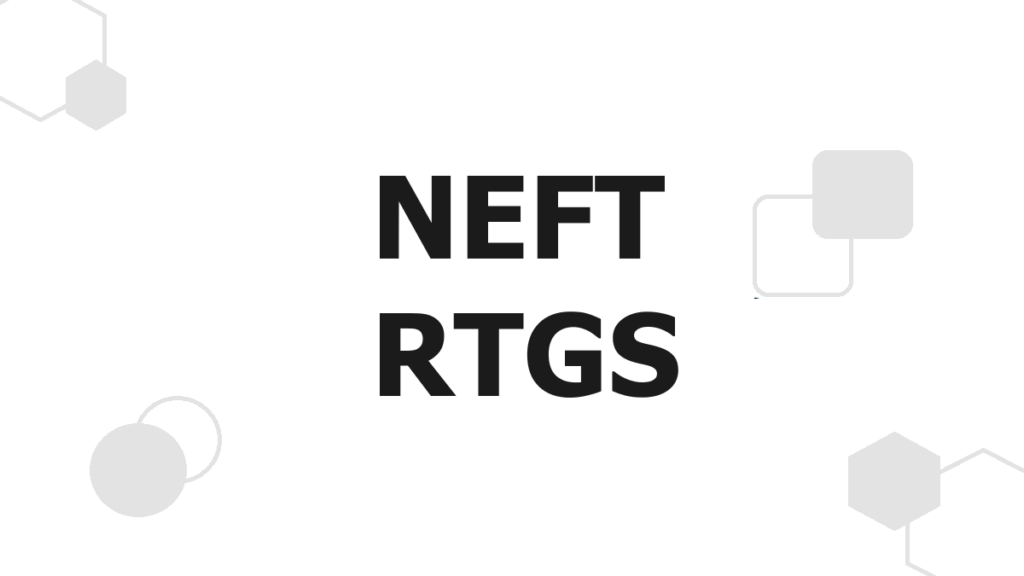Ever needed to transfer money quickly and securely? In India, you have two main options for electronic bank transfers: NEFT and RTGS.
But what’s the difference between them? Let’s break it down in simple terms to help you choose the right option for your needs.
Everyone has personal accounts in different banks. Money is deposited in them and transactions are conducted. Especially, money transfers involve sending money from our account to other accounts.
At that time, money is transferred through RTGS and NEFT. However, from January 1, 2020, there will be no charge for online NEFT transfers.
Banks such as SBI, HDFC, ICICI and others have provided this facility to their customers as per the orders of the Reserve Bank of India.
NEFT
NEFT stands for National Electronic Funds Transfer. It allows money to be sent from one person to another across the country.
Funds can be transferred from any bank branch, or through internet and mobile banking for added convenience.
NEFT transactions are processed in batches throughout the day, and transfer timings can vary, typically taking between thirty minutes to three hours.
National Electronic Funds Transfer (NEFT)
- Speed: Think of NEFT as a batch bus service. Transactions are collected and processed together in batches throughout the day, typically taking 2 hours to reach the beneficiary’s account.
- Transfer amount: NEFT allows transfers of any amount, from a few rupees to lakhs.
- Cost: NEFT charges are generally lower than RTGS.
Use NEFT for:
- Non-urgent transfers like bill payments or sending money to friends and family.
- Transfers of any amount, big or small.

RTGS
Funds can also be transferred to another person through Real-Time Gross Settlement (RTGS) mode. This makes the transfer very fast.
Once transferred, the funds will be credited to the recipient’s account. However, a minimum transaction amount of Rs. 2 lakh applies for RTGS. There is no upper limit.
Real-Time Gross Settlement (RTGS)
- Speed: RTGS is like an express taxi for your money. Transfers are processed individually and reach the beneficiary account instantly.
- Transfer amount: RTGS has a minimum transfer limit, typically starting from ₹2 lakh (subject to change by bank).
- Cost: Due to the faster processing, RTGS charges are generally higher than NEFT.
Use RTGS for:
- Urgent transfers like property down payments or critical business transactions.
- Transfers of high amounts of money.
Key differences
| Feature | NEFT | RTGS |
|---|---|---|
| Speed | Settled in batches (around 2 hours) | Instantaneous |
| Transfer amount | Any amount | Minimum ₹2 lakh (varies by bank) |
| Cost | Lower charges | Higher charges |
Necessary details for Money Transfers
Some details are very important for money transfers. Whether online or by going to banks and transferring money, these should be entered.
- Amount to be transferred.
- Beneficiary Bank, Account No.
- IFSC code of the bank
- Mobile number/email id of person to transfer money
- Purpose of remittance
Choosing Between NEFT and RTGS
Consider these factors when deciding:
Urgency: Need the money to arrive right away? Choose RTGS. Can it wait a few hours? NEFT is fine.
Transfer amount: Transferring a small amount? NEFT is your option. Large sum? Go for RTGS (if it meets the minimum limit).
Conclusion
Both NEFT and RTGS are secure and reliable ways to transfer money electronically in India. Choose the option that best suits your needs for speed, amount, and cost.
FAQs
What is NEFT?
NEFT stands for National Electronic Funds Transfer. It’s a batch-based system for electronic money transfers in India.
What is RTGS?
RTGS stands for Real-Time Gross Settlement. It’s an instant electronic money transfer system in India.
How fast is NEFT?
NEFT transfers take about 2 hours to reach the beneficiary’s account.
How fast is RTGS?
RTGS transfers are instant. The money reaches the beneficiary’s account immediately.
Is there a minimum transfer amount for NEFT?
No, you can transfer any amount through NEFT.
Is there a minimum transfer amount for RTGS?
Yes, RTGS typically has a minimum limit, usually around ₹2 lakh (check with your bank for exact details).
Which is cheaper, NEFT or RTGS?
NEFT charges are generally lower than RTGS.
When should I use NEFT?
Use NEFT for non-urgent transfers, any amount (big or small), like bill payments or sending money to friends and family.
When should I use RTGS?
Use RTGS for urgent transfers (like property payments) or high-value transactions.
Are NEFT and RTGS safe?
Yes, both NEFT and RTGS are secure and reliable ways to transfer money electronically in India.